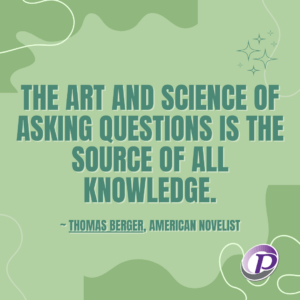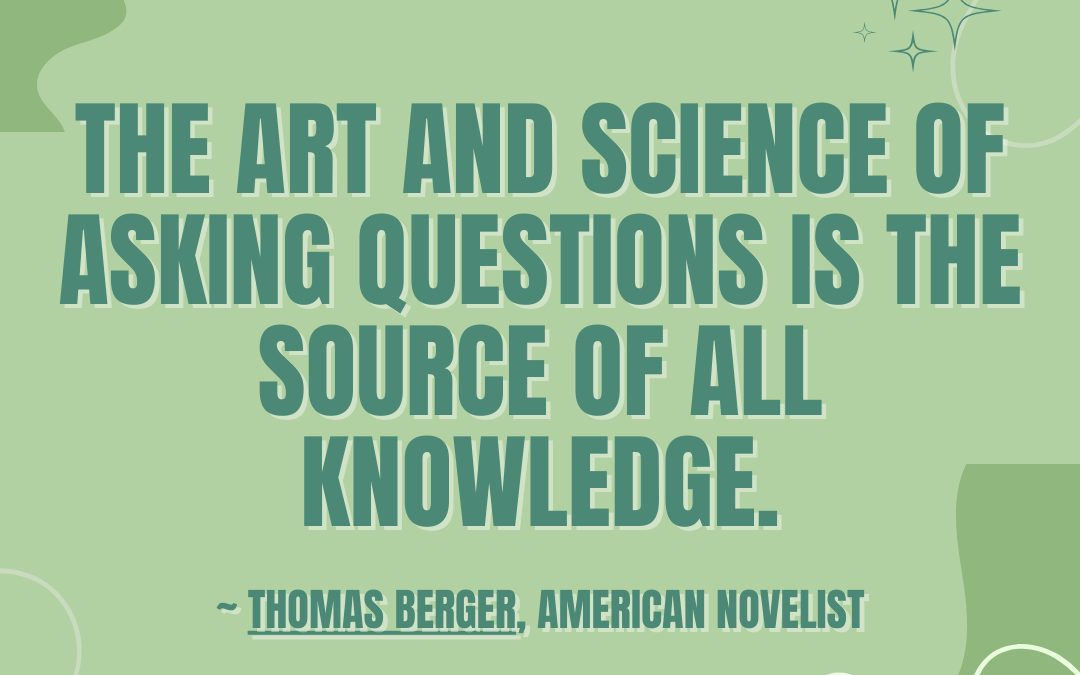
2 min readWhy Don’t They Ask?
by Guy Gage | February 17, 2024 | Business, Leadership

What managers Want
Across the nation, we hear a recurring lament from managers. They report that they are confused and frustrated because their staff won’t ask questions. They say, “I know my staff don’t know this stuff. Why do they spin their wheels and take way too much time, only to give me work that I have to do over? If they would just ask, it would make my life easier and they would learn faster.”
Managers could make it easier for their staff to ask questions, but they must first understand why their staff are hesitant to do so.
Why Staff Don’t
So we speak to the staff and ask them why they are reluctant to ask their managers questions. The responses are varied, but there are a few themes we hear frequently. I’ve added a thought about how staff could look at things differently.
“I like the challenge of figuring it out myself.” While this may sound noble, there is a point at which it isn’t. Remember, client work is not a school homework assignment. Eventually figuring it out on your own, at the expense of being inefficient, isn’t helpful.
“My managers are busy and I don’t want to bother them.” That’s their job. When you ask questions, you may feel like you are interrupting, but they would rather you ask and get it right than they having to write a review note because it is wrong. Or worse, just fix it and then have to remember to tell you about it later (if they remember at all).
“I don’t want to look incompetent.” Your managers don’t expect you to know. Even though you did well in school and in initial assignments, there is a mountain of learning and experience in front of you. They know that. Have you considered that maybe you demonstrate your incompetence when you DON’T ask? Hmm.
How Staff Could
Instead of not asking at all, ask smartly and professionally. Here are some suggestions.
- Take some time to figure it out yourself. Don’t give up immediately and appear lazy. But don’t spend hours on something that a five minute explanation would resolve.
- When you ask, state what your line of thinking is or where you are stuck. This demonstrates that you have tried already and not just looking for a quick answer. It will give your manager an indication of how to help you.
- Or, come right out and say, ‘I don’t even know where to begin.” This is especially the case when you are just starting out or you have an unfamiliar assignment.
- Or, admit you forgot. “You explained this to me earlier and I can’t remember all of what you said. Could you tell me again?” This time, pay particular attention, take notes, and retain it for the next time.
- Finally, get over your desire to convince your manager that you have potential and are not a total dunce. Remember to be thankful for their time and help. Humble gratitude goes a long way to earning the confidence of others.
What’s Next
Partners and managers: remind your staff that you are invested in their development and that you enjoy seeing their progress, especially when you have contributed. Also, forward this message to your staff. It is a great way to open the conversation about how to work together efficiently, effectively and enjoyably.
Read Related Blogs:
What Reality are you Naming?
Leaders establish reality by the way they talk about something. If a firm leader talks about a situation as unimportant, their followers will not take it seriously. If a leader refers to a decision as ill-advised, others will also resent it. If a leader reinforces a...
Igniting a Spark in Your Team Through Gratitude
As CPA’s, our days are often consumed by numbers and deadlines. Adding a bit of intentionality is all it takes to ignite a spark in your team that can transform your practice into a vibrant, motivated workplace. Gratitude is one catalyst for this energy. By weaving...
Protect Your Attention
As we've written and said so many times (here, here and here), no one aspires to be mediocre. Everyone wants to do well. So why don't we? A major reason is we aren't protecting our attention. Our attention is precious and it’s a huge influence in our progress in...



